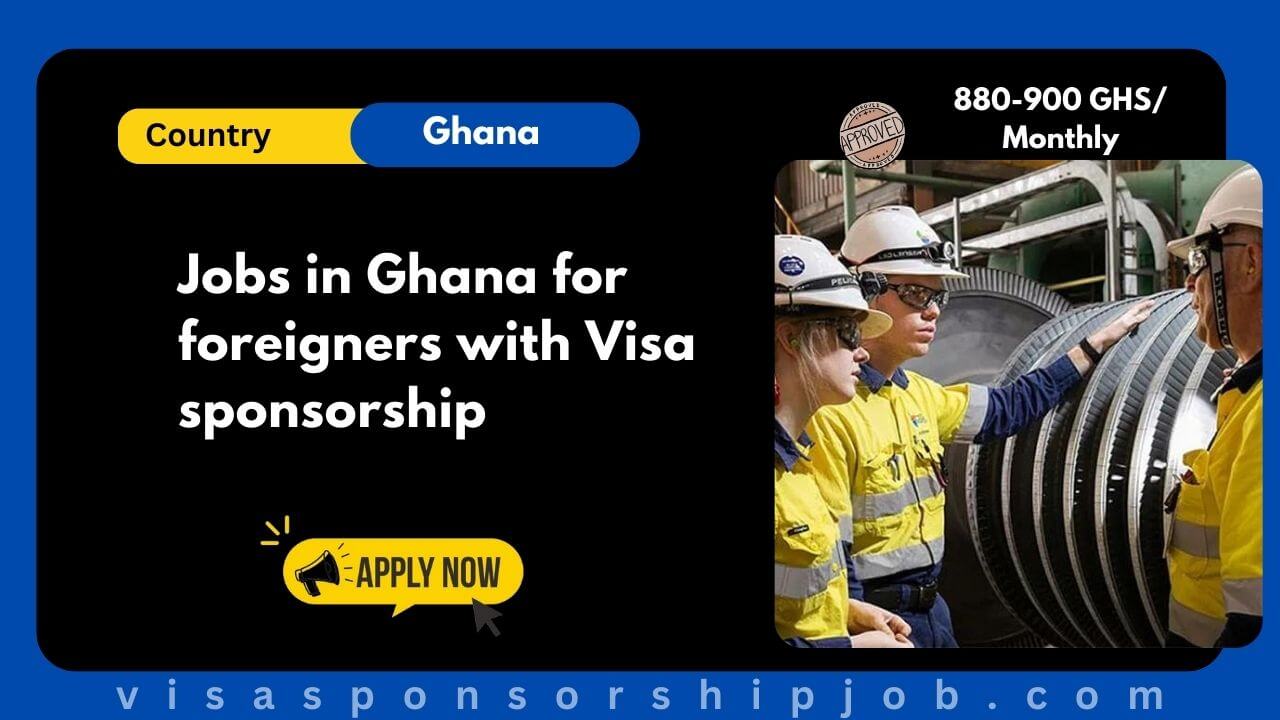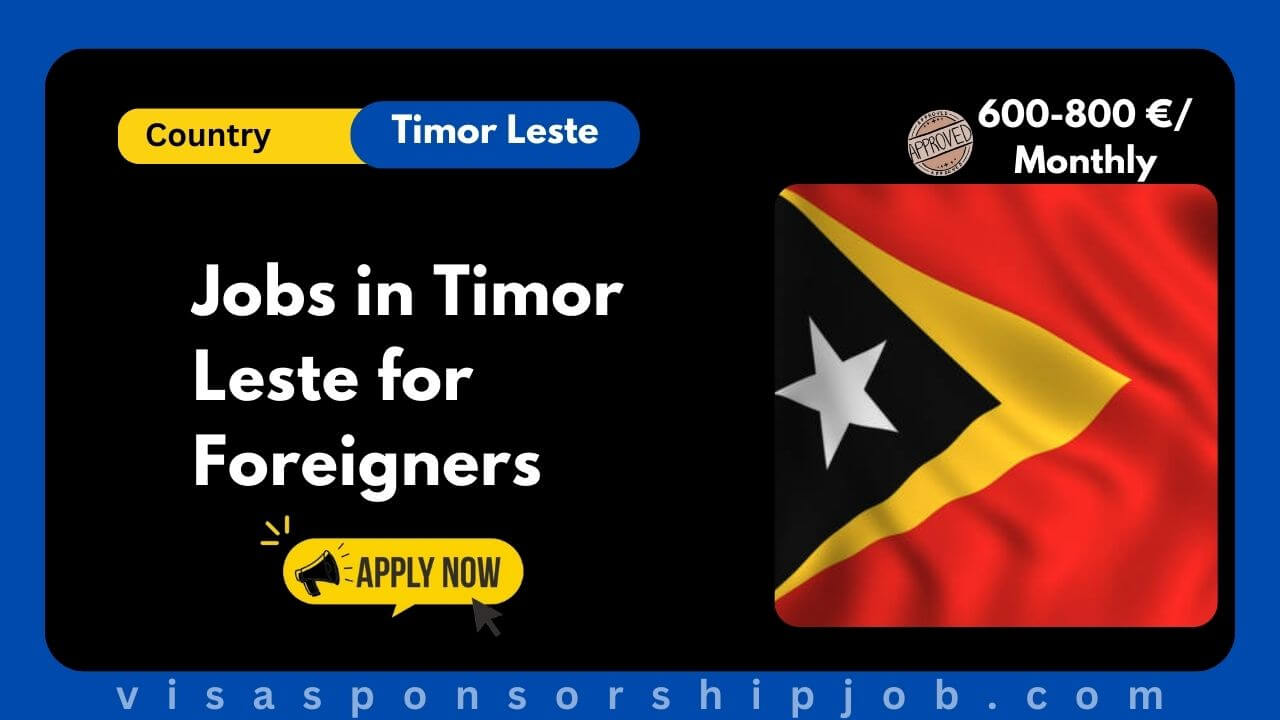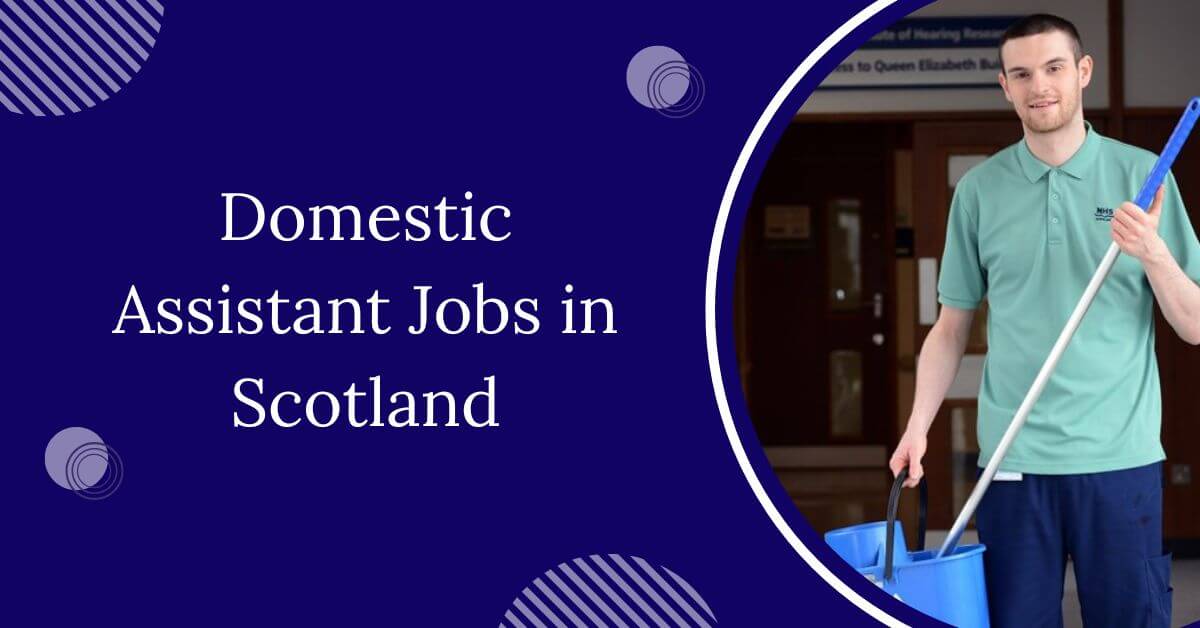Ghana visa sponsorship job opportunities for foreigners! Do you want to work in West Africa to pay for your visa? Foreigners can pursue a variety of professional opportunities in Ghana. Do you want to discover who are the finest recruitment firms in Ghana? If so, keep reading.
Ghana’s consistent economic growth makes this West African country a viable option for businesses wishing to expand internationally. However, before any international workers can begin working in a Ghanaian firm, they must have the necessary visas and permissions.
So, in this post, you’ll learn about visa sponsorship employment in Ghana, work visa qualifications in Ghana, the registration process, and much more.
Check Also: Cow Farm Worker Jobs in New Zealand with Visa Sponsorship
Jobs in Ghana for foreigners with Visa Sponsorship:
The following are the visa sponsorship jobs in Ghana for foreigners accessible.
- Representative of Sales
- Associate in Communications and Public Relations at the United Nations University (UNU)
- Company Secretarial Services – Skilled Assistant
- Chief Customer Officer of an Airline
- ActionAid Ghana (Upper West Region) General Programme Officer
- Beginner Trader
- Tigo Ghana’s Promotions and Events Coordinator
- Africa Foresight Group is looking for a NextGen Business Analyst.
- Project Manager
- Camfed Ghana (Tamale) Programme Officer
- Managing Director of Yees Africa
- Manager of Business Development
- Driver
- Engineer in Refrigeration
- Panagora Group’s Performance Monitoring Specialist, USAID West Africa PELA II
- Licensed Practical Nurse
- Regional Quality Improvement Specialist at URC (Volta Region, Takoradi and Ho).
Work Visa classes in Ghana:
Ghana, like any other country, offers a variety of visa options to international nationals. Citizens of the Economic Community of West African States (ECOWAS) are not required to obtain a visa to enter Ghana. All other overseas nationals must get a visa from their home country’s Ghanaian embassy.
The following visas are available:
- Holders with single-entry visas can enter Ghana once and stay for up to three months.
- To live and work in Ghana, foreign nationals will need a resident permit and a work permit in addition to an entrance visa.
Qualifications for Ghana Work Visas:
It is the responsibility of the company to apply for a work permit on behalf of any foreign workers engaged. The employee must produce the following documents:
- a photocopy of a valid passport
- A curriculum vitae demonstrating the employee’s eligibility to work in Ghana.
- It is necessary to have a medical certificate.
- Background checks from the employee’s native country’s police.
Aside from these documents, the employer must also provide:
- The employment contract.
- The firm’s current audit code.
- A tax clearance certificate.
- Corporation code regulations.
- Certificates of incorporation and registration for the company.
- The certificate authorizes the company to begin operations.
- According to the evidence, the firm advertised the post in Ghana to local workers.
Foreign nationals with a work permit will still need a residency permit before they may start working in Ghana. This permit requires the following documents:
- Two passport pictures.
- A real, original passport.
- A current work permit.
- An employment contract.
- Identification card for non-citizens.
- Documents for the employer’s business registration and tax clearances.
Benefits of Jobs:
- Diverse career prospects: Ghana’s expanding economy offers a variety of career prospects for foreigners in industries such as mining, agriculture, energy, finance, tourism, and others.
- Work Permits and Visa Sponsorship: To legally work in Ghana, foreigners frequently require a work permit. Employers can sponsor the visa and work permit, allowing them to work legally in the country.
- Cultural Experience and Exposure: Work in Ghana provides foreigners with the opportunity to immerse themselves in a new culture, learn about local traditions, and develop a better knowledge of the Ghanaian way of life.
- Competitive Salaries and Benefits: Depending on the industry and position, foreigners may be compensated with competitive salaries, housing allowances, healthcare benefits, and other perks to attract and retain talent.
- Networking and Professional Development: Working in Ghana allows you to make professional contacts, network with local and international colleagues, and potentially develop your career by being exposed to fresh experiences and viewpoints.
- Community Involvement and Social Impact: Foreigners frequently have the opportunity to engage with local communities, contribute to social initiatives, and participate in community development projects, thus creating a good impact on society.
- Opportunities for Learning and Development: Ghana provides learning experiences for foreigners, including exposure to various business processes, languages, and local customs, increasing personal and professional growth.
- Gateway to Africa: Ghana’s strategic location in West Africa puts it as a gateway for foreigners to travel and do business across the African continent, perhaps opening doors to opportunities in surrounding countries.
- Cost of Living and Quality of Life: When compared to many industrialized countries, Ghana has a comparatively low cost of living, providing for a high standard of living and the ability to save or invest.
The Registration process:
- While the documentation required to obtain work and resident permits in Ghana may appear lengthy, the application procedures are straightforward.
- To begin, the prospective employee should apply for an entry visa at the Ghanaian embassy in their home country — or in a neighboring country if there is no embassy in their home country. Candidates must submit a completed application form as well as a visa valid for at least six months, passport photos, a letter from their employer, and proof of yellow fever vaccination.
- The employee should also provide any papers required to apply for a work permit and a residency permit to the company. Work and residency permits should be obtained from the Ghana Immigration Service (GIS).
- Once the GIS has approved these permissions, the employee may travel to Ghana and begin working.
Important Factors:
Some employees may wish to bring family members to Ghana, therefore your company should be informed of the procedure for them as well. Dependent resident permits can be applied for on behalf of spouses, children, and parents over the age of 60 by foreign employees with valid residency. In addition to the standard papers, applicants must produce proof of their relationship to the employee, such as a marriage or birth certificate.
Best Recruitment Agencies in Ghana:
Are you looking for the best recruitment agencies in Ghana? Here is a list of the Top Best Recruitment Agencies in Ghana.
- JobSeek Ghana Recruitment Agency
- JobHouse Recruitment Agency (Ghana)
- Labor Power Recruitment and Staffing Solutions Ltd
- XyCareers Ghana
- JobsinGhana
- Result Oriented Professional Services (ROPS)
- Power Intel Consulting
- Africa Manpower
- Era ITA Services
- Rockcee Travels & Recruitment Consult Ltd.
For More Info:
Email Your CV, and We’ll Find the Best Pathway For you: info@visasponsorshipjob.com
Frequently Asked Questions:
Can a foreigner work in Ghana?
We assist non-Ghanaians with getting a work permit. A foreign national can’t pursue work, employment, or business without the proper authorities issuing them a Work Permit. This is valid for all foreign nationals, including ECOWAS members.
Is Ghana a good place to work?
The country is well developed, with a strong, well-rounded economy that provides opportunities for both early career and senior professionals in an array of industry sectors. Natural resources indicate that the country has powerful manufacturing and extraction sectors, as well as strong agricultural production. Working in Ghana has one peculiarity: time flexibility.
How many hours of work in Ghana?
The Labour Act specifies a maximum of eight hours of work per day or 40 hours per week. Workers have the right to a continuous daily rest period of at least 12 hours between two consecutive working days, as well as a rest week of 48 hours in a row every seven days of normal hours of work.






